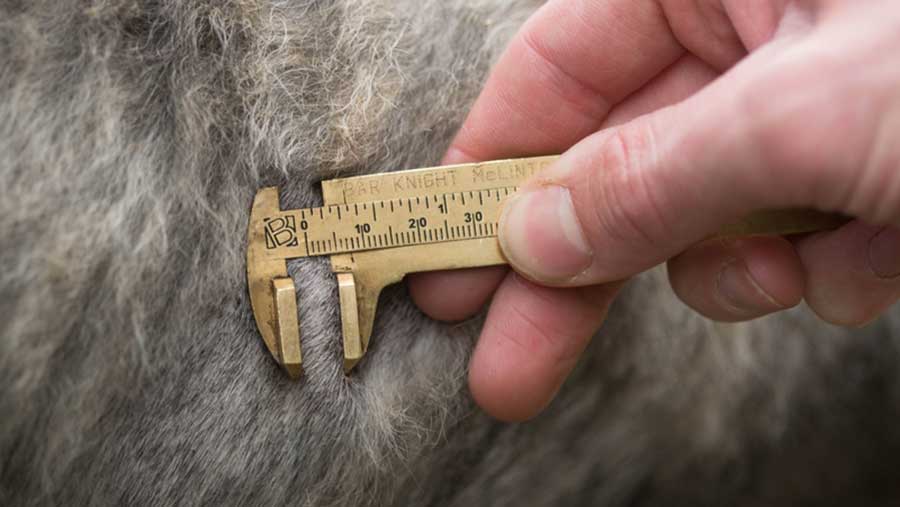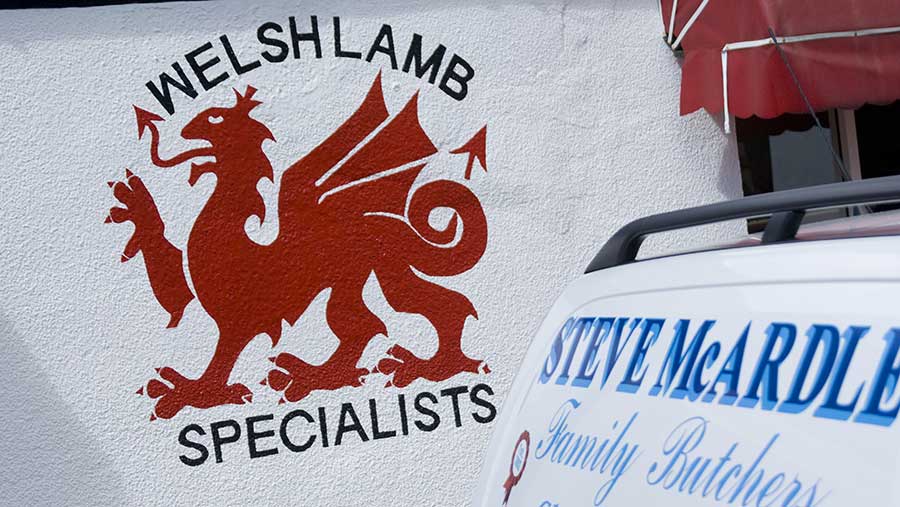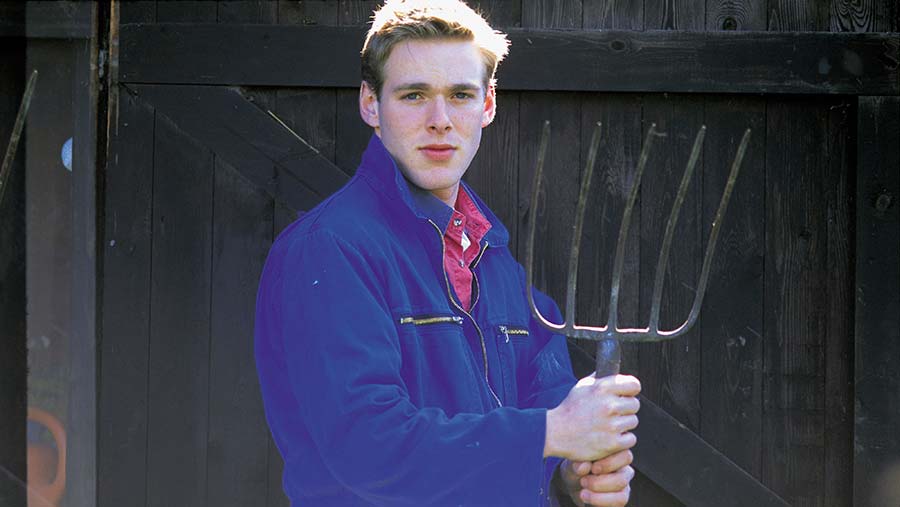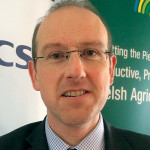10 key issues that affect farming in Wales
 © Patrick Frilet/REX/Shutterstock
© Patrick Frilet/REX/Shutterstock The farming industry remains the backbone of the rural economy in Wales, but it has been hit by a series of blows in recent years.
Ahead of the Welsh Assembly elections on 5 May, Philip Case highlights the key issues the next government will have to tackle if rural communities are to survive and flourish.
Broadband and mobile phone coverage
A lack of rural broadband and access to mobile phone coverage is a huge barrier to growth and job creation on farms in Wales.
The Welsh government has invested heavily to improve access to broadband services over the past four years.
According to a recent Ofcom report, however, access in Wales is lower than in the UK as a whole. One in two rural premises still has no fast broadband coverage and 33% have no 3G mobile coverage.
Farmers’ Union of Wales president Glyn Roberts says farmers are under increasing demands to carry out their business duties online. “More must be done to accelerate access to these essential services all over Wales, not just in urban areas.”
Bovine TB

© Tim Scrivener
Bovine TB presents the biggest threat to the future sustainability of the Welsh dairy and beef industries.
Despite the fact that farmers have adhered to stringent cattle movement and annual testing controls, TB continues to devastate herds.
Government figures released last month showed 8,103 cattle were slaughtered in Wales last year – a massive hike of 27% on 2014.
NFU Cymru says a comprehensive plan of action that tackles the disease in both wildlife and cattle is a key priority for the next government.
Union president Stephen James says a global shortage of BCG vaccine, which forced the Labour administration to suspend its badger vaccination project, means “no politician or party can hide behind vaccination as their sole policy for dealing with the disease in wildlife”.
Planning restrictions
The current planning system remains a headache for farmers in Wales and is often viewed as a barrier to exploring new opportunities.
There is widespread concern that many local planning authorities are unwilling or unable to permit developments due to a range of factors, including local objections, and the fear of the unknown.
The Farmers’ Union of Wales (FUW) president says the perception is that planning in rural areas has a “presumption against” – or, if granted, is subject to restrictive agricultural ties that can stifle alternative use or diversification.
In particular, planners are turning down development within the National Parks, small-scale alternative energy projects and environmental projects such as new slurry stores amid concerns about “super-dairies” in England.
The FUW wants the next government to ensure excessive red tape and hurdles are removed to make it easier for farmers and those who derive an income from agriculture to develop their businesses.
Low farmgate prices and local food procurement

© Photofusion/REX/Shutterstock
Average net farm business income in Wales fell 25% in the year to March, according to Welsh government estimates.
Farmgate prices for dairy cereals, cattle and sheep continue to be under pressure. The steep decline in Welsh dairy farmer numbers will continue unless supply-chain profits are shared more equally.
It is imperative that prices paid to producers not only cover production, but also provide room for investment. Every year, the public sector in Wales spends £74m on food, of which £47m is spent on produce from Welsh companies.
Snowdonia hill farmer Gareth Wyn Jones says: “It’s disgraceful that £30m is spent on food and drink from outside Wales. That could be spent on local food. We keep talking about the global economy, but we need to give more support to local farmers and businesses.”
Rural Development Programme
Farmers and landowners have criticised the way the Welsh government’s £1bn (2014-2020) Wales Rural Development Programme (RDP) – known as Glastir – has been carved up and they would like to see a fairer distribution of the money so that every farmer can benefit.
For example, just 12 out of 270 farmers who expressed an interest were awarded grants under the Sustainable Production Grant Scheme, which is aimed at improving the environmental and economic performance of holdings.
In the second tranche roughly 40 people will be allocated £6m (£150,000 spend per individual farm) between them.
More than two years after the Welsh government decided to transfer the maximum 15% modulation rate from CAP Pillar 1 to Pillar 2, farmers are calling for a fairer share of RDP funding. Powys hill farmer Glasnant Morgan says: “We need this replaced by a smaller grants scheme, so that every farmer benefits.”
Next generation

© RESO/REX/Shutterstock
The average age of Welsh farmers is now almost 60. Therefore, policies are needed to encourage the next generation into farming to take over the reins.
The CLA believes share farming could enable thousands of younger farmers to get their foot on the farming ladder.
As such, it has launched a scheme to match older farmers with young entrepreneurs to create new businesses, joint ventures and share land.
The Welsh government-backed Young Entrants’ Support Scheme has provided vital help for thousands of young farmers to set up their first holdings.
However, government cash cuts to support the 155 Young Farmers’ Clubs in Wales don’t send out the right message.
It is vital these funding streams are secured for the future to attract more young people into farming. More training must also be provided at higher education level to equip people with the skills they need to pursue careers in the industry.
Council farms
Council holdings are regularly being sold off – to go to sitting tenants, to be dispersed between existing farms or for development.
Over the past five years, local authorities have sold off 56 farms and buildings in Wales. There are now 495 left in pubic ownership.
Brian Walters, vice-president of the Farmers’ Union of Wales (FUW), says the council sell-off of farms must stop. “We are losing out on the potential for youngsters to get in the industry,” he explains.
When central government cuts back funding for local government, it’s inevitable councils will seek to sell their assets to generate funds. “As the old saying goes, it’s selling off the family silver,” says Mr Walters. “But at what price? If you sell a 100-acre farm today, the way land prices are increasing, you won’t be able to afford to buy it back in 10 years’ time.”
The FUW says a central organisation should be formed to take decisions on the future of council farms out of the hands of local authorities.
EU referendum
Wales, like Scotland, is considered to be one of the most pro-EU regions. The Welsh farming industry is heavily reliant on financial support from Brussels.
Direct payments under the common agricultural policy (CAP) are worth £240m each year to farmers. The Labour-run Welsh government has warned an EU exit would put this funding at risk and have “catastrophic consequences” for Welsh agriculture.
Both farming unions, NFU Cymru and the Farmers’ Union of Wales (FUW), have declared their support for remaining in the EU.
Ahead of the 23 June referendum vote, the FUW wants the next government to lobby at all levels for what is best for Wales in terms of EU membership and the future of the CAP, and to identify contingency plans for farming if the UK votes to leave the EU.
Public access to farmland

© FLPA/John Eveson/Rex/Shutterstock
Last summer, the Labour-run Welsh government launched a consultation on a proposal to increase public access to farmland in order to improve health and wellbeing.
Almost a quarter of Wales (451,000ha) is already designated as open land and there are about 25,000 miles of public rights of way.
The results of the consultation have not been released. Increasing numbers of tourists bring economic benefits to the rural economy.
But farmers and landowners have huge concerns about an open-access charter. Sheep worrying by dogs, cattle grazing on pastures contaminated by dog faeces, the threat of farm crime, gates being left open and public liability over the dangers of livestock and machinery are all major concerns.
Basic Payment Scheme
EU direct payments to farming businesses in Wales are worth on average about €260m (£207m) a year (from 2015-2020), with more support coming from the RDP (see above).
In view of depressed market prices across all farming sectors, it is vital these payments are delivered in a timely manner.
Farm leaders remain concerned that the last round of CAP reform and greening has left Wales with an imperfect BPS, which places onerous requirements and red tape on farmers and adversely affects capacity for food production.
Despite two legal challenges, the Welsh government has decided to phase in a flat-rate payment system for all farmers by 2019. Critics fear the system will probably penalise lowland farmers.
NFU Cymru wants the next government to find a “fairer” system for distributing subsidy. It has called for a remapping exercise to assess productive capacity of all agricultural land in Wales with a view to consulting on a regional BPS payments system, which would be acceptable to the EU Commission.
What the candidates say
Candidates campaigning to be elected set out their views on farming at a recent hustings event, hosted by NFU Cymru and the Royal Institution of Chartered Surveyors (RICS), in Llandrindod Wells.
 Gethin James, UKIP candidate for Ceredigion
Gethin James, UKIP candidate for Ceredigion
“If UKIP were in power and we were outside the EU, we would still subsidise farming. The big problem in the run-up to the referendum is the government won’t tell you what may happen if we do vote to come out.”
 Llyr Gruffydd, Plaid Cymru candidate for North Wales.
Llyr Gruffydd, Plaid Cymru candidate for North Wales.
“Tackling bovine TB is key. If I were minister, I would not be afraid of making any difficult decisions, but they must be science-led.
 Kirsty Williams, Liberal Democrat candidate for Brecon and Radnor
Kirsty Williams, Liberal Democrat candidate for Brecon and Radnor
“Our big priority is to promote policies that ensure the food security of our nation. It is a foolish government indeed that does not ensure it has the ability to feed its population.”
 Alex Thomas, Labour candidate for Brecon and Radnor
Alex Thomas, Labour candidate for Brecon and Radnor
“Nobody understands the land and production of food better than farmers. Partnership doesn’t always mean agreeing, but it does mean having an open door.”
 Aled Davies, Welsh Conservatives candidate for Montgomeryshire
Aled Davies, Welsh Conservatives candidate for Montgomeryshire
“Family farms form the backbone of mid and west Wales. It’s important we support the farming industry so that farmers can support our local services, including schools, pubs and shops.”
